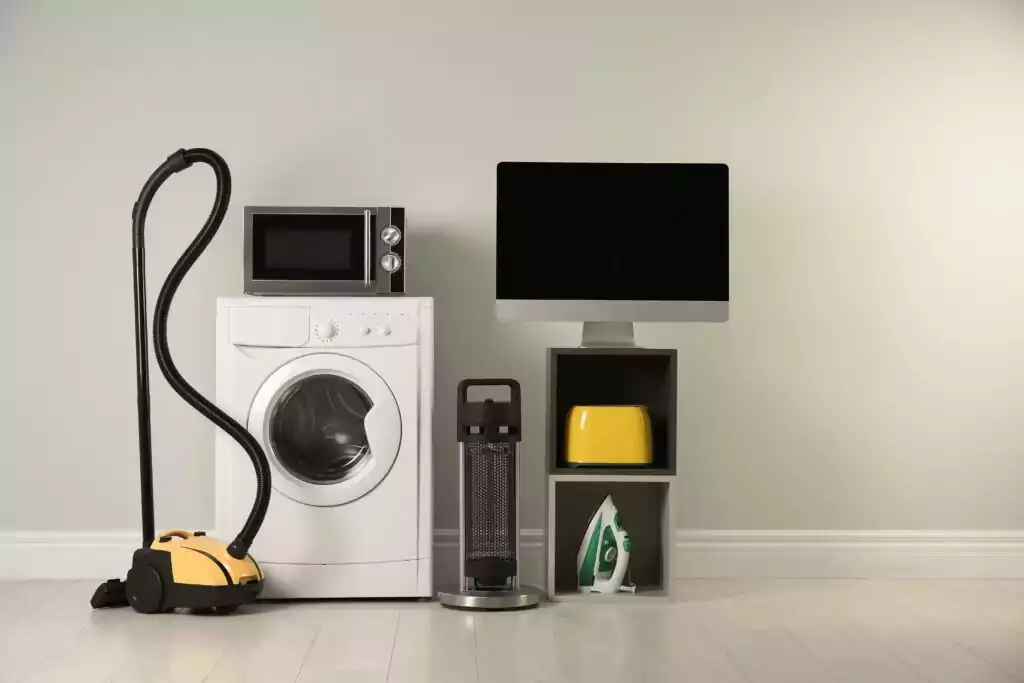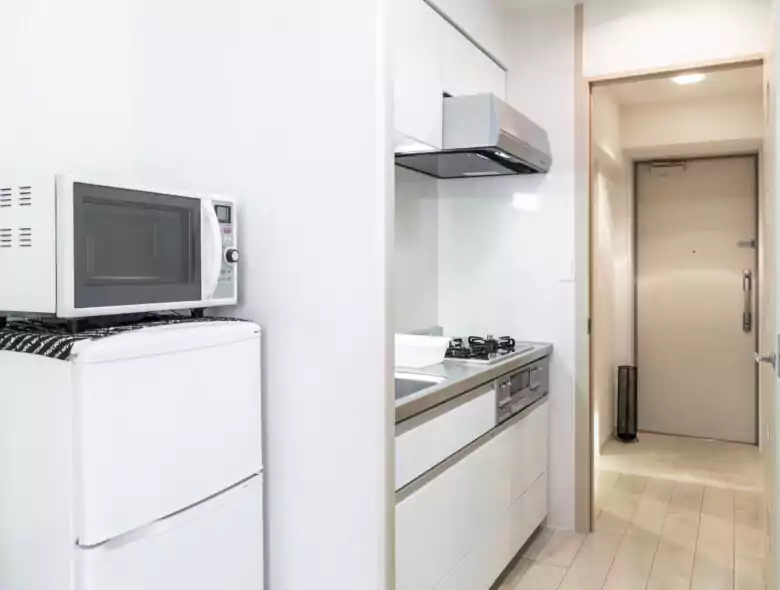Moving to Japan or moving homes in Japan can be an expensive affair because more often than not, rental properties come unfurnished. Normally, there’s no furniture in sight, and there might not even be an A/C unit, stovetop, or light fixtures.
Now, if you’re planning on moving to Japan and are thinking, ‘this doesn’t apply to
me; I can just ship all my furniture and appliances over!’, hold on! Apartments and houses in Japan tend to be much smaller than say apartments and houses in The States or Europe so your furniture might not fit. Secondly, depending on where you’re moving from, you may not be able to use your household or kitchen appliances in Japan due to the differences in voltage. Japan operates on a 100-volt current while other countries operate on a 100V~240-volt current. If you’re looking to bring some appliances over from abroad, you’re going to need to invest in a step-up transformer, which can cost anywhere between ¥5,000~¥50,000. You’ll also need power adapters as the plug sockets in Japan might differ from the ones at home.
So, if you’re looking to not exhaust your financial resources when you’re moving to Japan or moving to an unfurnished unit, read on to find out how you can save yourself some money. You can also ask your Village House representative how you can save on furnishings and appliances if you’re going with them because they offer moving support and can assist you in such matters.

Appliance Cost Calculator
One of your biggest expenses will be household and kitchen appliances. There’s no real way of getting around to not buying these necessities unless you’re willing to use the nearest Laundromat or live off of takeout and delivery.
Washing machines can start anywhere from ¥20,000 and go as high as ¥250,000 depending on make and model, functionality, top-loader or front-loader, size, and capacity, etc.
Refrigerators can cost around ¥18,000 and go up to around ¥350,000 depending on size, brand, functionality, etc.
Stovetops, depending on whether you’re looking for gas or electric, may start anywhere from ¥16,000 to ¥26,000.
If you’re living alone and/or don’t like to spend hours of your precious time in front of the stove after a long day at work, then you may want to invest in a microwave, which has an average starting cost of around ¥5,000~¥7,000.
If you fancy some toast or doing some – light, simple, and small – baking, then you’ll need a toaster oven as standard-sized ovens are not common in Japan and can be pricey. Toaster ovens can start from ¥2,500 yen with limited functionality and size.
Of course, if you’re planning to move to Japan for only a short period of time, you may want to consider renting appliances instead of buying them. Not only might it be cheaper but you’ll also avoid the headache-inducing task of having to get rid of them, which in Japan, can be rather taxing. If you’re renting a property from Village House, you can opt for some “add-ons” to be installed in the apartment you signed a lease for, like an A/C unit, gas stove, vanity sink, and washlet toilet.
Prices and availability may vary so check with your Village House real estate agent for more details.

Cheap Furniture
The cost of moving is never cheap but you can cut corners and save yourself some cash by buying generic, non-Japanese brands or shopping at one of the following places:
IKEA – we all know IKEA. Its reputation precedes itself when it comes to reasonably priced furniture that’s supposedly easy to transport home due to its flat packing. IKEA may be a good bet for you if you’re looking for more Western-style furniture and household fixings.
MUJI – this is a Japanese retail company specializing in household goods that are minimalistic in design. They also emphasize on recycling and limiting production and packing waste so if you’re looking to ease your consciousness regarding the environment and global warming, why not check out one of their numerous stores?
NITORI – also known as “Japanese IKEA”, Nitori is a low-cost retailer selling household goods with stores at city-center locations. They also specialize in uniquely Japanese household goods such as futons, futon covers, and Kotatsus. So if you’re interested in such items, you can find them here.
On Sale
Everybody loves a good sale and Japan is no different. One of the best times to go bargain hunting in Japan is between December and February. Known as Hatsu-uri
or “First Sale of the Year”, this is the equivalent of Black Friday in Japan albeit longer and many shops, including electronic and appliance stores, participate in this event. If you’ve been eyeing that fancy new coffee machine or a combo washer-and-dryer, but want to be kind to your wallet; then wait until this period to splurge.
Another good time to go hunting for household goods, furniture, and appliances is March. This is the end of the fiscal year for businesses in Japan so many stores and businesses will hold sales to try to wrap up their financial year on a good note.

Secondhand Stores
As previously mentioned, getting rid of large pieces of furniture, appliances, and other household goods can be a taxing and difficult affair. You have to obtain a special sodai gomi ticket if you want to dispose of such items and you’ll also need to call to arrange a time for these items to be collected. As if moving wasn’t stressful enough.
Luckily, there’s a solution: secondhand shops, or recycle shops they are more commonly called in Japan. Due to the tricky nature of getting rid of furniture and bulky goods in Japan, you can score a great bargain at these shops because it’s easier to send your unwanted furniture and appliances to these businesses than to get rid of them.
One of the most popular recycling shop companies in Japan is the “OFF” shops. House Off and Hard Off are where you can go sniffing around for some perfectly functioning furniture, appliances, and other household goods. Sometimes, depending on what’s on offer, they may have bundle deals where you can get a fridge, microwave, and washing machine for around ¥35,000~¥50,000, warranty and shipping included!
Other recycle shops in Japan include 2nd Street, which has over 550 stores around Japan and specializes in providing customers with high-quality secondhand goods. If you’re out in the sticks there’s also Cosmo Space, another recycle or reuse shop. Canvass your neighborhood for local secondhand shops and thrift stores as well
because it may save you the shipping costs.

Facebook Marketplace
Lastly, if you’re internet savvy, many expats have formed various Facebook groups to assist in helping other expats obtain or get rid of unwanted white goods or furniture. One of the most prevalent and popular Facebook groups is Sayonara Sale, which is dedicated to selling, giving away, and asking for items. All posts are pre-approved for safety and minimizing buyer’s remorse; and all posts must include: description, location for pickup, price, condition, and of course, a picture.
If you’re really strapped for cash, then Mottainai Japan is another Facebook group you can have a look at. This organization emphasizes saving the environment by giving away items for free.
On the other hand, if you have some cash to spare or are looking for a particular item, you may want to try Mercari, a Japanese online flea market service. There’s also Craigslist Japan and GaijinPot, which has classifieds used by many expats looking to get rid of their stuff, either free or for a price, which may sometimes be negotiable. Use common sense and ask questions and verify the condition and location when using such websites though so you don’t fall victim to any scams.
If you’re looking for more ways to save money, you might consider moving into a Village House! Your ideal affordable Japanese rental home might be waiting for you on our website, so please have a look at our available apartments!



